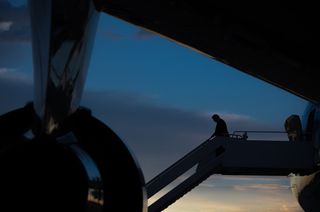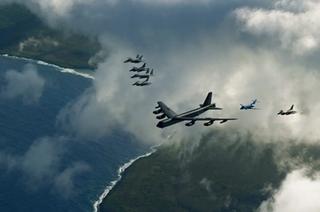The Australian
By David King
KEITH Martz is the fourth generation of his family to toil in the fields of Bluegrass, Iowa, and the drought that's gripping the corn belt has not spared them. "About a month ago, I thought: man, we're not going to have anything," says Martz as he walks past his rows of yellowing corn. "We've got to be thankful that we're going to have a crop."
The early season went well for the Martz family, with rain after planting and reasonable soil moisture. But then it turned hot and dry. Like thousands of farms in the US, they were hit by the worst drought since 1956.
A recent downpour may have saved the season for Keith and his brother David, who grow corn and soy beans on their 485ha farm. They are preparing to bring in a diminished corn crop, with kernels that have endured through some extreme weather.
"This is the worst we've had for quite a while," says their father Earl, who predicts the yield will fall by about 30 per cent.
The US drought monitor shows large parts of the central US are in extreme drought with some pockets experiencing an exceptional dry. In the middle of last month drought covered 60 per cent of the lower 48 states, (which excludes Alaska and Hawaii). One quarter of the country was experiencing extreme to exceptional drought. The seasonal outlook suggests conditions will remain unchanged until November, but there's hope an El Nino season wil bring more rain.
As the harvest approaches, Americans far from agricultural states will start feeling the pinch. The initial impact will be financial - primarily in higher prices for meat.
Of the 29 million hectares of corn grown in the US, 40 per cent goes to animal feed. A similar amount is used to make ethanol and the rest goes for human consumption.
Livestock producers, who are facing higher feed prices, are being forced to sell or liquidate herds, leading to a reduction in meat supply and a price push at the counter. Food costs are expected to rise up to 4 per cent next year.
The drought is never consistent across the country. The latest Drought Monitor report shows an easing in the midwest, and a worsening in the northern plains. Hurricane Isaac may bring some welcome rain. But the extent of the drought has been severe, striking 85 per cent of the US corn crop and 83 per cent of soy beans. More than half of the corn corp is in bad condition. Transporting grain has also been hit, with a 17km stretch of the Mississippi river closed to traffic after water levels dropped and barges began running aground.
The drought has thrown up a number of political issues, mostly centred on subsidies.
Farm insurance, which is federally subsidised, covers crop production. The extent of those subsidies and which farmers get them, is contentious. A package of national farm programs is due to expire on September 30, a new bill has yet to pass and farmers want certainty about insurance schemes. There's a call for greater assistance to livestock producers whose herds are not insured in the same way.
But not all farmers are fans of government subsidies. Keith Martz would prefer to look after his own business.
"Forget all the rest of that nonsense, let us alone," Martz says. "The country's broke. There's areas that should not be running crops. They should be grassland and cattle. They put crops in there and they can't support them. This country is so far in debt. This has got to end. You can't keep pandering to one group."
Both political parties have campaigned hard in Iowa, with Mitt Romney and President Barack Obama visiting in the past few weeks. Iowa's a small state, with just six electoral college votes, but it holds a special place in the nation's political make-up.
It's the home of the caucuses, the first indication of how Americans feel about the candidates and it was where Mr Obama surged into the national consciousness four years ago.
Jeff Charis-Carlson, the opinion editor of the Iowa City Press Citizen, says the campaign teams have come to Iowa early in the election race.
"We, every four years, are used to national reporters, political reporters, and candidates descending upon us. We are not used to them sticking around after the caucus and paying attention to what we have to say when the election is actually coming up," he says.
David King is a journalist with The Australian. He is the recipient of the 2012 US Studies Centre World Press Institute media fellowship.




.jpg?rect=0,80,3000,1989&fp-x=0.5&fp-y=0.44772296905517583&w=320&h=212&fit=crop&crop=focalpoint&auto=format)